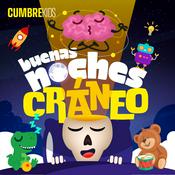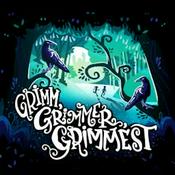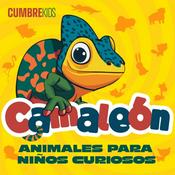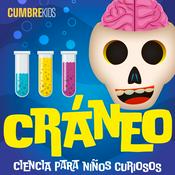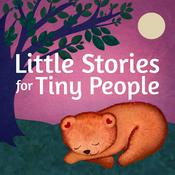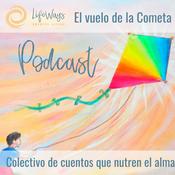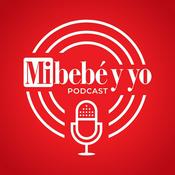171 episodios
- Got a question? 🤔
Head over to -- https://thriftyhomesteader.com/goat-rescue/ -- and drop it in the comments—so we can reply!
Description
When people think about animal rescue, they often picture a few animals and a lot of good intentions. In this episode, host Deborah Niemann talks with Deborah Blum, founder of Goatlandia Farm Animal Sanctuary in Sebastopol, California, about what it really takes to run a nonprofit farm animal sanctuary with dozens of goats and more than 150 animals total.
Deborah Blum shares how a simple love of goats turned into Goatlandia, a sanctuary that provides lifelong care for abused, neglected, stray, and surrendered farm animals. What began with just a few goats has grown into a complex operation involving quarantine protocols, disease management, veterinary partnerships, volunteers, fundraising, and constant decision-making about when to say yes—and when to say no.
In their conversation, Blum opens up about the realities of rescue work, including caring for goats with chronic diseases like CL, managing biosecurity, and helping animals recover not just physically, but emotionally. She also shares unforgettable rescue stories, from feral goats found wandering the woods to animals that survived severe injuries and neglect and went on to thrive at the sanctuary.
This episode also explores the behind-the-scenes work that many people never consider, such as building a reliable veterinary team, supporting staff and volunteers, educating the community, and creating sustainable revenue streams to keep a sanctuary running long-term.
Whether you’ve ever dreamed of starting a farm animal sanctuary, are involved in rescue work, or simply want a deeper understanding of what compassionate goat care looks like on a large scale, this episode offers an honest, thoughtful look at the challenges and rewards of running a goat rescue.
Goat Health & Disease Resources
Testing Goats for CAE, CL, and Johne’s (podcast)
Abscesses and CL in Goats (article)
Caprine Arthritis Encephalitis (CAE) in Goats (article)
Johne’s Disease in Goats (podcast)
Thanks for tuning in!
If you’d like to support the content you love and help us keep bringing you new goat resources, you can do that through our Tip Jar.
No one ever said raising goats was easy, but it doesn't have to cost a fortune or drive you crazy! You just need the right information.
🔹 Check out Goats 365 membership
🔹 Or explore The Goat Academy
🔹Looking for Deborah's books? They can be purchased wherever books are sold, or you can get an autographed copy on our online store.
Happy goat-keeping! 🐐 - Got a question? 🤔
Head over to -- https://thriftyhomesteader.com/what-to-feed-a-pregnant-goat/ -- and drop it in the comments—so we can reply!
Description:
Proper nutrition during pregnancy is essential for keeping both does and kids healthy — but more isn’t always better! In this short, science-based episode, Deborah Niemann explains how to balance feed, minerals, and body condition during gestation, and why following feeding advice from other species (or even other parts of the world) can lead to trouble.
She also shares lessons from her own herd, including what happened when overfeeding resulted in giant kids, and how choosing the right hay and minerals can help prevent pregnancy complications such as hypocalcemia and toxemia.
Additional Information:
Study Referenced in This Episode
Do Goats Need Grain During Pregnancy? (article)
Thanks for tuning in!
If you’d like to support the content you love and help us keep bringing you new goat resources, you can do that through our Tip Jar.
No one ever said raising goats was easy, but it doesn't have to cost a fortune or drive you crazy! You just need the right information.
🔹 Check out Goats 365 membership
🔹 Or explore The Goat Academy
🔹Looking for Deborah's books? They can be purchased wherever books are sold, or you can get an autographed copy on our online store.
Happy goat-keeping! 🐐 - Got a question? 🤔
Head over to -- https://thriftyhomesteader.com/goats-in-america/ -- and drop it in the comments—so we can reply!
Description
If you’ve ever wondered how goats went from being banned in colonies to beloved on social media, this episode is for you!
In this episode of For the Love of Goats, host Deborah Niemann talks with Tami Parr, author of Goats in America: A Cultural History (As an Amazon Associate, I earn from qualifying purchases), about how goats have shaped — and been shaped by — American society for over 400 years.
Tami shares how her background as a cheese writer and historian led her to explore the surprising role of goats in U.S. history — from being despised agricultural “troublemakers” in the 1600s to starring in today’s goat yoga classes and artisan cheese shops. She also explains how perceptions of goat milk shifted during the tuberculosis outbreaks of the 19th century, leading to a complete transformation in how Americans viewed goats and dairy.
Whether you raise goats, love history, or are simply curious about how these resilient animals earned their place in American culture, this episode offers a fascinating journey through time — full of unexpected stories, social change, and a few laughs along the way.
Thanks for tuning in!
If you’d like to support the content you love and help us keep bringing you new goat resources, you can do that through our Tip Jar.
No one ever said raising goats was easy, but it doesn't have to cost a fortune or drive you crazy! You just need the right information.
🔹 Check out Goats 365 membership
🔹 Or explore The Goat Academy
🔹Looking for Deborah's books? They can be purchased wherever books are sold, or you can get an autographed copy on our online store.
Happy goat-keeping! 🐐 - Got a question? 🤔
Head over to -- https://thriftyhomesteader.com/goat-milk-ice-cream-and-gelato/ -- and drop it in the comments—so we can reply!
Description
If you’ve ever wondered how to turn your goat milk into something people line up for, this episode is for you!
In this episode of For the Love of Goats, host Deborah Niemann chats with Oskar Edwall from Sweden, who started with just a few goats and ended up creating a thriving business making goat milk ice cream and gelato.
Oskar shares how his curiosity for goat milk led to raising his own herd, experimenting with recipes, and eventually perfecting creamy, flavorful gelato that customers can’t get enough of. From using Swedish dairy goats and Anglo-Nubians to learning gelato-making, he explains the science, creativity, and passion behind his success.
Whether you’re dreaming of selling your own goat milk ice cream, experimenting with gelato recipes, or just love hearing about creative ways goats can support a homestead, this episode is packed with inspiration (and maybe a few cravings too!).
You may also enjoy:
Episode 161 - Turning Goat Milk into Pet Food: Labeling and Licensing Essentials
Episode 156 - From Lab Coat to Cheesecloth: Dr. Kandice Marchant’s Delicious Second Act
Episode 33 - Prairie Fruits Farm and Creamery
Thanks for tuning in!
If you’d like to support the content you love and help us keep bringing you new goat resources, you can do that through our Tip Jar.
No one ever said raising goats was easy, but it doesn't have to cost a fortune or drive you crazy! You just need the right information.
🔹 Check out Goats 365 membership
🔹 Or explore The Goat Academy
🔹Looking for Deborah's books? They can be purchased wherever books are sold, or you can get an autographed copy on our online store.
Happy goat-keeping! 🐐 - Got a question? 🤔
Head over to -- https://thriftyhomesteader.com/goat-yoga/ -- and drop it in the comments—so we can reply!
Description
When people hear you have goats, one of the first questions they ask is, “Do you do goat yoga?” In this fun and fascinating episode, host Deborah Niemann talks with the person who started it all—Lainey Morse, founder of the original Goat Yoga in Oregon’s Willamette Valley.
Lainey shares how goat yoga began in 2016 during one of the most difficult times of her life—and how a simple idea for “Goat Happy Hour” transformed into a viral global phenomenon featured on CNN, People Magazine, The New York Times, and more.
You’ll hear how she built her business from her farm to multiple licensed locations across the U.S., what makes goats perfect partners for yoga, and the practical realities—like insurance, zoning, and goat care—that many people overlook when they try to start goat yoga on their own.
Whether you’ve thought about starting goat yoga yourself, or just want to understand why the world fell in love with it, this episode is full of heart, humor, and inspiration.
You may also enjoy:
Ep #85 Goat Business Ideas: How to Make Money With Your Goats
Ep #159 How Beekman 1802 Used GOAT Wisdom to Build a Beloved Brand
Ep #142 Rent a Goat: Turning Goatscaping into a Thriving Business
Ep #127 Success with Dairy Goats: Goat Milk Stuff
Ep #132 Farm Stays: The Key to a Diversified Farm
Thanks for tuning in!
If you’d like to support the content you love and help us keep bringing you new goat resources, you can do that through our Tip Jar.
No one ever said raising goats was easy, but it doesn't have to cost a fortune or drive you crazy! You just need the right information.
🔹 Check out Goats 365 membership
🔹 Or explore The Goat Academy
🔹Looking for Deborah's books? They can be purchased wherever books are sold, or you can get an autographed copy on our online store.
Happy goat-keeping! 🐐
Más podcasts de Niños y familia
Podcasts a la moda de Niños y familia
Acerca de For the Love of Goats
We are talking about everything goats! Whether you're an owner, a breeder, or just a fan of these wonderful creatures, we've got you covered. Join host and author Deborah Niemann as she interviews experts and goat lovers so we can all learn more about how to improve the health and production of our goats, improve our relationships, and possibly even start a goat business.Happy anniversary to us! FTLOG is five years old! As we enter our sixth year, you can continue to expect to hear from more goat experts like vet professors and researchers who are on the leading edge of goat research. You’ll also hear from goat owners who have turned their love of goats into a successful business. And this year, you’ll hear more stories about goats and the people who love them. Learn more on our website, fortheloveofgoats.com
Sitio web del podcastEscucha For the Love of Goats, Buenas noches, Cráneo: Historias para dormir y muchos más podcasts de todo el mundo con la aplicación de radio.net

Descarga la app gratuita: radio.net
- Añadir radios y podcasts a favoritos
- Transmisión por Wi-Fi y Bluetooth
- Carplay & Android Auto compatible
- Muchas otras funciones de la app
Descarga la app gratuita: radio.net
- Añadir radios y podcasts a favoritos
- Transmisión por Wi-Fi y Bluetooth
- Carplay & Android Auto compatible
- Muchas otras funciones de la app


For the Love of Goats
Escanea el código,
Descarga la app,
Escucha.
Descarga la app,
Escucha.

